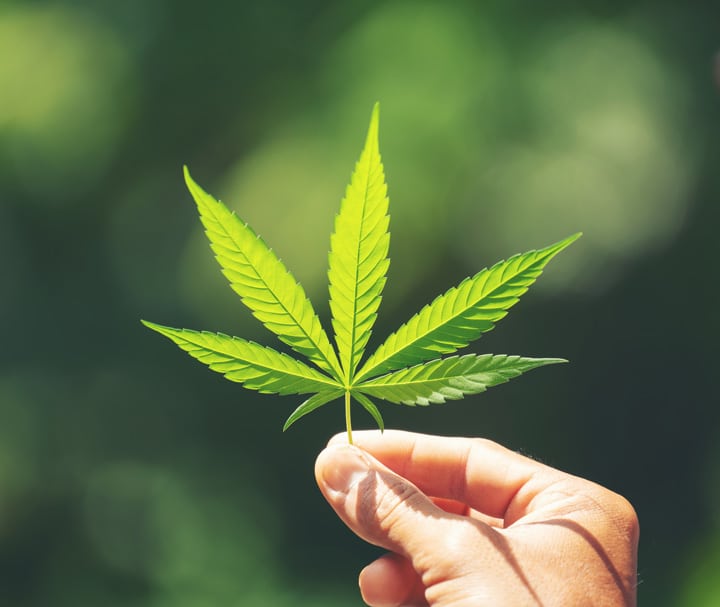There are quite a few withdrawal symptoms of weed. When someone stops using weed after regularly using it for a while, they might experience some withdrawal symptoms. These symptoms can vary from person to person in terms of intensity and duration. It’s important to remember that not everyone will experience these symptoms. And, if they do, they usually peak within the first week of quitting and gradually decrease over time.
- Mood changes (irritability, anxiety, depression)
- Sleep troubles (difficulty falling asleep, vivid dreams)
- Appetite fluctuations (increase or decrease in hunger)
- Physical discomfort (headaches, body aches)
- Cravings for weed
- Trouble concentrating
- Sweating and chills
- Restlessness
- Vivid dreams
Remember, these symptoms aren’t permanent and they tend to fade as your body adjusts to not having weed. If you are trying to quit and these symptoms are bothering you, it’s a good idea to reach out to a healthcare professional. A medical professional can guide you to the best regarding your situation. At Sanctuary Clinics, we take the time and effort to make sure that our patients are comfortable. We also ensure that they are able to navigate their symptoms properly without too much discomfort. Cannabis withdrawal symptoms are not easy to deal with. We accompany our patients during such challenging moments and offer constant medical attention.

What are the types of symptoms associated with weed withdrawal?
There are many types of symptoms associated with weed withdrawal. Let us take a look at the symptoms of withdrawal.
Stomach Pains and Abdominal Pain
Stomach pains and abdominal discomfort are common withdrawal symptoms during weed cessation. It’s like your digestive system is adjusting after not having the usual effects of weed. This can sometimes lead to temporary discomfort. This usually gets better as your body adapts.
Sleep Difficulties and Disturbance
Sleep difficulties and disturbances often happen when quitting weed. Your sleep patterns are readjusting without the calming effects of the drug. It might take a little time for your body to settle into a new sleep routine, and this leads to temporary sleep disruptions. There have been many instances of self-reported sleep disturbances from chronic users of cannabis.
Strange Dreams or Nightmares
Experiencing unusual dreams or even nightmares after quitting weed is a quite common symptom. Your brain recalibrates itself without the influence of the drug, and this causes your dream patterns to change. These vivid dreams are a part of the adjustment process and usually normalize as your body gets used to the absence of weed.
Restlessness or Irritability
Restlessness and irritability often show up during weed withdrawal. Your body and mind adapt to a new chemical balance without the regular intake of the drug.
This can lead to feelings of restlessness and a shorter fuse, but it’s a temporary phase as your system finds its equilibrium again.
Depressed Mood or Anxiety
Experiencing a dip in mood or heightened anxiety when stopping weed is quite common. Your brain adjusts to the absence of the substance that used to influence your mood and emotions. It’s like a temporary adjustment period where your brain chemistry tries to find its natural balance again. These feelings usually ease up as your body gets accustomed to the change.
Get Help Today.
We are here to help you through every aspect of recovery.
Let us call you to learn more about our treatment options.
We are here to help you through every aspect of recovery. Let us call you to learn more about our treatment options.
What are extreme withdrawal symptoms from weed?
There are quite a few withdrawal symptoms from weed. Withdrawal symptoms from weed can get quite serious, especially if the individual used to take a lot of marijuana. There are many clinical studies that suggest the high rate of Cannabis use disorder. According to a study, out of 469 adults who smoked marijuana and attempted to quit, nearly 95.5% of them encountered at least one withdrawal symptom. For 43.1% of these individuals, they faced two or more of these symptoms during their attempt to quit. Plus, in another study in 2020, the prevalence of cannabis withdrawal syndrome was discovered to be 47%. This goes to show that weed withdrawal symptoms can be dangerous. Here are some serious marijuana withdrawal symptoms to look out for:
- Severe anxiety or panic attacks
- Intense depression
- Severe insomnia
- Flu-like symptoms (nausea, vomiting, fever)
- Profound mood swings
- Intense cravings and difficulty managing urges
- Severe loss of appetite or overeating
- Intense irritability or anger
- Suicidal thoughts (in very rare cases)
- Chronic pain and muscle pain
What are relapse symptoms for weed?
There are quite a few relapse symptoms for weed. Marijuana relapse happens when someone goes back to using the substance after a period of not using it. It’s a genuine concern for a lot of people in recovery, this idea of slipping back into old habits. You might find yourself craving the calming effects it once provided or feeling anxious without it. Your mind can start to rationalize just one more time, even if you have decided to quit. It’s a reminder that breaking free from old habits isn’t always easy, and these symptoms can challenge your resolve. Sometimes, individuals who indulge in marijuana abuse can develop a mental health condition or have co-occurring disorders when dealing with withdrawal symptoms. If you notice relapse signs, remember that seeking support can help you get back on track.
At Sanctuary Clinics, we are vigilant about symptoms and make sure that nobody is experiencing relapse symptoms of marijuana withdrawal or falling back into old patterns in their recovery journey.
Our goal is substance use treatment for long-term users.

How do you prevent weed withdrawal symptoms?
You can prevent weed withdrawal symptoms with a combination of strategies to help your body adjust more smoothly. Gradually reduce your use instead of quitting suddenly as this can ease the shock to your system. Stay hydrated, eat well, and get enough sleep to support your body during this time. Keep your mind occupied with activities you enjoy and lean on friends or support groups as this can also make the journey less challenging. Remember, taking it step by step and seeking guidance from professionals can play a big role in managing these symptoms.
What are side effects of withdrawal from weed?
There are a few side effects of withdrawal from weed.
When you decide to quit, it takes some time for your body to readjust. In those moments, you might experience side effects that can be quite challenging.
Here are some of such side effects of the psychoactive substance:
- Mood changes
- Sleep troubles
- Appetite fluctuations
- Physical symptoms
- Cravings for weed
- Trouble concentrating
- Sweating and chills
- Psychological symptoms
These uncomfortable withdrawal symptoms are usually temporary and gradually lessen as your body adapts to the absence of weed. They can be a little challenging for your mental health and physical health but remember that they are temporary. The marijuana withdrawal timeline is short. Moreover, there are mental health professionals available to help you with the symptoms of weed withdrawal or other substance use disorders. Bipolar disorder, depressive disorder, and other psychotic disorders can sometimes accompany the withdrawal symptoms.
What medication is best for withdrawal from weed?
There isn’t any particular medication that is best for withdrawal from weed. Withdrawal symptoms go away on their own after a period of time. While there isn’t a specific medication designed solely for weed withdrawal, certain medications and strategies can help tackle various symptoms of cannabis withdrawal:
- Anxiety and Irritability: If you are experiencing heightened anxiety or irritability, a doctor might prescribe antidepressants or anti-anxiety medications to provide relief.
- Sleep Disturbance: Short-term use of sleep aids could be an option to help manage sleep difficulties during withdrawal.
- Nausea and Vomiting: Over-the-counter anti-nausea medications can help if you are dealing with nausea or vomiting.
Other than medication, there are other treatment options that marijuana users could look into to get rid of marijuana addiction. It is best not to self-medicate yourself with any medical advice. Management of cannabis withdrawal symptoms is difficult, but it is not impossible. At Sanctuary Clinics, we make sure that the individuals get rid of the symptoms over time and get back to their old lives. We aim for long-term recovery.
Get Help Today.
We are here to help you through every aspect of recovery.
Let us call you to learn more about our treatment options.
We are here to help you through every aspect of recovery. Let us call you to learn more about our treatment options.









